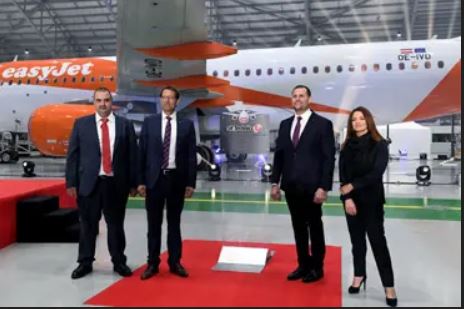
- The number of customers who travel with easyJet and require special assistance has increased by more than 100,000 since 2015 up by 14% from the prior financial year.
easyJet flew a record 80.2 million passengers in FY2017 and of those 519,762 required and were provided with some form of assistance during their travels – a record number for the airline. This is a 14% increase in special assistance passengers from 2016 and an increase of over 23% or 100,000 passengers requiring special assistance over the last two years.
These latest figures show that the number of passengers now travelling and requiring special assistance is increasing at a faster rate than overall passenger numbers, suggesting that more passengers than ever are confident in the support they will receive when flying with the airline.
Customer satisfaction amongst easyJet special assistance passengers was 83% in 2017, which is higher than customer satisfaction amongst all passengers overall. This marks the fourth successive year that satisfaction is higher for customers who need special assistance.
easyJet has a range of measures for passengers who require special assistance including a customer contact centre team who are fully-trained in special assistance issues and onboard wheelchairs on all aircraft. easyJet crew and ground agents are trained on providing special assistance to travellers, including how to identify and support passengers with hidden disabilities.
easyJet established the easyJet Special Assistance Advisory Group (ESAAG) in 2012 to provide feedback and guidance on the services it provides to passengers who require special assistance.
The group is chaired by former cabinet minister Lord David Blunkett and includes experts in key easyJet markets all of whom have personal or professional experience of special assistance issues.
Lord Blunkett, Chair of the easyJet Special Assistance Advisory Group, commented:
“As a customer who travels regularly using special assistance, I am truly heartened that more customers than ever are travelling with easyJet. It shows that customers have the confidence to travel in the knowledge that they will be supported effectively.
“It is important to remember to contact the airline online or by phone prior to departure so they can be fully prepared for arrival and provide a smooth and easy journey.”
James Fremantle, Manager, Consumer Policy and Enforcement for the Civil Aviation Authority (CAA) said:
“Making air travel even more accessible to disabled people is a priority for the CAA, and we continuously monitor airports and airlines to drive improvements.
“In the last five years, the CAA has worked with the aviation industry, to make significant strides in opening up access to disabled passengers, through the introduction of enhanced assistance services, the use of new innovative equipment and ensuring there is tailored assistance for people with hidden disabilities such as autism and dementia.
“With these improvements, it is pleasing to see that more than three million people requested extra help at UK airports in 2016, up from 2.7 million the previous year, easily outstripping general passenger growth. This is an increase of two thirds in the last seven years.
“And through our ongoing consumer tracker research, we also know disabled air passengers who book special assistance in advance of their journey have high levels of satisfaction, when passing through UK terminals and onboard aircraft, and we expect this trend to continue.”
easyJet is also working with leading charities which represent people with a range of disabilities to ensure the travel experience with easyJet for people requiring special assistance can be made ever easier, this includes looking at what more support can be given to passengers with ‘hidden disabilities’. In July 2017, ESAAG brought together charities that represent people with these conditions, as well as the UK Civil Aviation Authority, to discuss these issues.
easyJet reviews all stages in its passengers’ journey to ensure that it is as easy as possible for all passengers and the airline has invested significantly in providing assistance for all needs and in the training of its crew and ground operations staff who provide special assistance to our passengers.
Details on assistance available can be viewed at http://www.easyjet.com/en/help/boarding-and-flying/special-assistance.
ESAAG has also had a role in wider easyJet projects, such as the consolidation of easyJet operations at London Gatwick into the North Terminal and digital developments such as improved information and advice, the on-going reconfiguration of the easyJet website and apps for use in navigating airports.
It’s important for any customer requiring special assistance to request support at least 48 hours before they fly in order for support to be provided.


